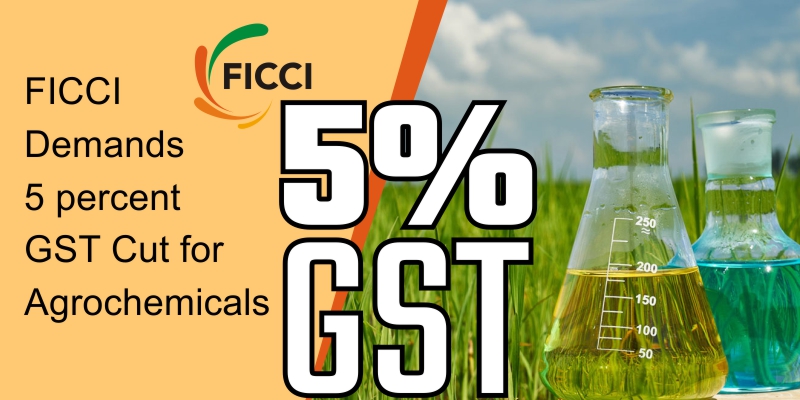Former Agriculture Commissioner Dr. Charudatta Digambar Mayee stated that the agrochemical business serves as a pillar for our farmers, assuring them of excellent yields and better-quality produce while minimizing crop losses.
KhetiGaadi always provides right tractor information
On June 23 (Thursday), FICCI will hold its 11th Agrochemicals conference in New Delhi, with the theme “Policy landscape for a flourishing Agrochemicals Industry.” FICCI today stated that the GST Council should positively consider the agrochemical industry plea seeking a decrease in the tax rate on agrochemical inputs for the farm sector from the current 18 percent to 5 percent at the most because crop protection solutions are essential for proper planning of crop health for higher productivity and income of farmers and consistent growth of the agriculture sector.
On June 28 and 29, the 47th meeting of the GST Council will be held in Chandigarh under the leadership of Union Finance Minister Nirmala Sitharaman.
Speaking at a press conference sponsored by FICCI on the topic of “Policy Landscape for a Flourishing Agrochemicals Industry,” R. G. Agarwal, Chairman of the Dhanuka Group and Chair of the FICCI Committee on Crop Protection, claimed that smallholder farmers are particularly hurt by high Goods and Service Tax (GST) on crop protection chemicals because it drives up their input costs and forces them to use these crucial components inadvertently to the disadvantage of the farm.
A GST of 18% on agrochemicals is wholly unjustifiable given that they not only operate as insurance for crop health but also improve farmer quality, yield, and revenue. It should be lowered to a maximum of 5% to be on par with fertilizers because this high rate of 18% is unjustified.
Former Agriculture Commissioner Dr. Charudatta Digambar Mayee stated that the agrochemical business serves as a pillar for our farmers, assuring them of greater yields and better-quality products while minimizing crop losses. There is an urgent need to restructure the regulatory system for the introduction of new and innovative chemicals and technologies in light of the changing environment and rising pest and disease concerns. To guarantee the supply of top-notch agrochemicals to farmers on an ongoing basis, it is urgently necessary to improve the enforcement system at various levels.
Dr. Mayee stated, “This can be accomplished with the support of the private sector in addition to hiring adequate manpower and strengthening government laboratories, providing the most cutting-edge measuring tools, reference standards, making ISO17025 NABL certification mandatory as done under FSSAI Act, as well as support from Quality Council of India or other independent organizations.
The Government must completely overhaul how the CIB&RC operates and urge them to swiftly and transparently carry out the decisions reached in the various RCs, he continued. The agrochemical industry will become more effective in providing solutions that serve the agriculture sector in a sustainable way as a result of the effective and prompt implementation of regulatory decisions by the government.
In order to attract new technology and investment from developed nations, the government has designated pesticides as a champion industry. As a result, it is crucial to align Indian law with international standards. It is also important to revisit some provisions of the Draft PMB 2020, which was created prior to the existence of the COVID.
To know more about tractor price contact to our executive






